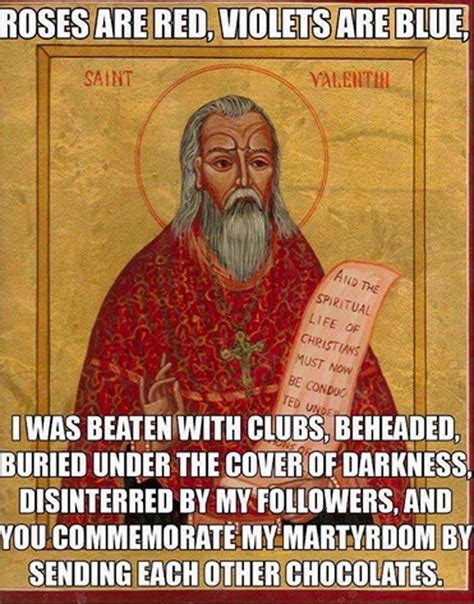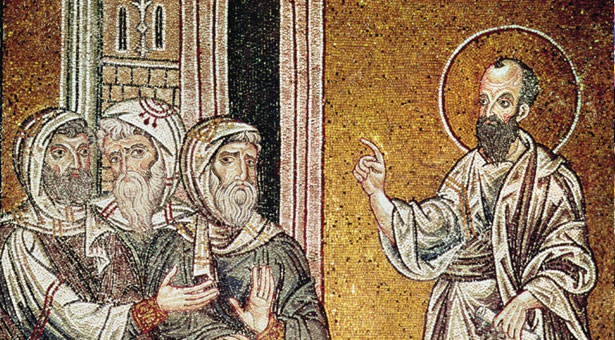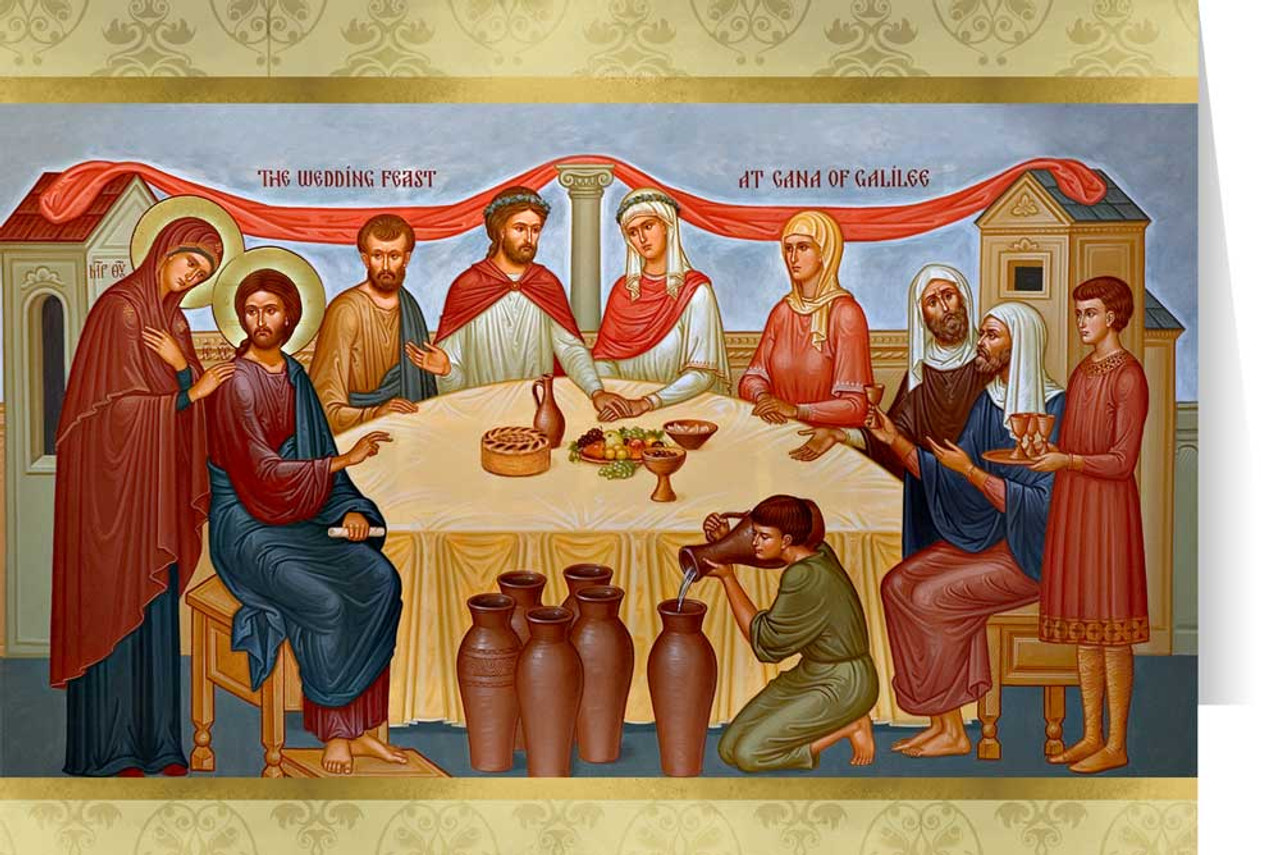We are two days away from the month of February, which is itself the month in which that most Hallmark-y of holidays resides: Valentine’s Day. Only sixteen shopping days left! And Valentine’s Day is big business.[i] In a recent year, Americans spent $18.2 billion on the holiday. That comes out to $137 per person, and that includes kids! Breaking that down, $4.3 billion is spent on jewelry. Another $2 billion is spent on flowers. A cool $1.7 billion is spent on candy and chocolate. And don’t forget those Hallmark cards. Americans purchase 190 million greeting cards for Valentine’s Day, to the tune of $1 billion. My goodness.
Valentine’s Day was, of course, originally the Feast of St. Valentine. Though Valentine’s Day is thoroughly secularized, since it is named for a Christian martyr and dedicated to love, it is worth our consideration.
The hazy historical record actually mentions three separate Chistian martyrs known as Valentine, each of whom lived during the reign of the Roman Emperor Claudius. Analogous to the legends of the historical St. Nicholas that evolved into our modern Santa Claus, the little we know of Valentine (or the several Valentines) informs our modern Valentine’s Day practices.

At least one of the historical Valentines was a priest. When Emperor Claudius determined that single men made for more dedicated legionnaires and consequently outlawed marriage, Valentine continued to marry young lovers in secret, for which he was executed when found out. Another of the Valentines was imprisoned after being caught helping others escape Roman capture. This Valentine then fell in love with his jailor’s daughter, and he wrote her letters from his cell signed, “From your Valentine,” thus coining a phrase that has survived to our own day.
In a world so often marked by disdain, apathy, and hate, it is good that there is a holiday—even a crassly commercialized holiday—dedicated to love. The question to ask is “To what kind of love is Valentine’s Day dedicated?” The answer, of course, is romantic love. But for Christian people that begs a second question: “Is romantic love—the love of mushy greeting cards, boxes of chocolate, and bouquets of roses—what Holy Scripture means by love?
And that question is the answer to the question rolling around in some of your heads: “Why is Barkley preaching about Valentine’s Day on January 30? Doesn’t he know there’s a Sunday the day before Valentine’s Day? Wouldn’t it make more sense to preach Valentine’s Day on February 13?”
You’d think, except that today, as we prepare to usher in February and with Valentine’s Day on the near horizon, the lectionary gives us 1 Corinthians 13, read at 90% of all the weddings ever (including my own), and universally regarded therefore as Holy Scripture’s poetic homage to romantic love.

At first glance, it may seem so. Because those starry-eyed couples almost always choose St. Paul’s great love hymn in 1 Corinthians 13 to be read at their weddings, we assume it is a romantic love poem. There, Paul says that, among lovers, “Love is patient. Love is kind. Love is not arrogant, boastful, or rude.” But there’s a problem. When we really think about it, romantic love is not patient. It exists with passionate urgency. Romantic love is not kind. It will push everything out of its way to attain its end. Romantic love does not, as the passage goes on to say, rejoice in truth. Instead, it will believe anything but the truth in order to keep a romantic fantasy going.
Paul must, therefore, be talking about something other than romantic love. And indeed he is. You see, Paul writes to the Christians in Corinth because the Corinthians bicker and fight about everything. The superficial bonds that drew them together in community have broken. Their relationships have become one-sided, and each focuses on what is best for him, or how the others ought to fawn all over her. They are not patient. They are not kind. They do not rejoice in truth. They are boastful, arrogant, and rude. They each claim to bring to the table gifts and graces that set them above their sisters and brothers, that make them more important and more worthy. And they wonder why their community is dysfunctional.
To this crowd Paul writes about a different kind of love. Paul speaks of a love that is tenacious, that endures amidst strain and pain, that perseveres in the face of challenge. It is a love that is a daily decision, that is, as I have said elsewhere, an act of dogged will. It is a love that gives meaning to all other gifts, because when we have it, we use those other gifts always for the building up of someone else and not for our own pride or prestige. It is a love stronger than granite or iron, because it is forged in the very heart of God and then flows to and through God’s children.

About this love Paul writes, “If I have not love, I gain nothing. Love is patient; love is kind; love is not envious or boastful or arrogant or rude. Love does not insist on its own way; it is not irritable or resentful; it rejoices not in wrong-doing but in the truth.”
It is my joy that I can say this is the love I see most often expressed here at Christ Church Cathedral. The character of our community is not like that of the Corinthian church. And for us, this is necessarily so. Christ Church is a downtown parish in the center of a sprawling urban maze. Even before the pandemic, becoming and remaining part of this community required that daily and weekly decision, that dogged act of will. And now, when the world starts and stops in COVID fits, nurturing membership in this community is a compounded challenge. And yet, the Cathedral is here, and strong, and faithful. Not fuzzily or superficially romantic is the love that binds us to one another and to this place. The love here is of God, the powerful, enduring, sustaining, transforming love of which St. Paul speaks.
But when I look out upon the broader world, this love is sorely lacking. Today’s world is Corinth writ-large. Power, coercion, and self-satisfaction often masquerade as love. Abuse, abandonment, anger, recrimination, and disdain are rampant. It is enough almost to make one despair. Almost, but not quite. Because we know that relationships of love can be different. We know that the dogged act of will is worth it. We know what love looks like, and we—like St. Paul—can be apostles to a world that mistakes Hallmark cards and chocolate for love.
This year on the Feast of St. Valentine, let’s celebrate the love of which St. Paul sings. Sure, it can be conveyed in a card or a gift, but it is best shared through acts of courage, attention, kindness, and care. It is the love expressed by the historical Valentine (or Valentines!), when he made the dogged decision and took great risk to marry the faithful and free the innocent. It is the love that is God, and which, through God’s grace, we are blessed to share.
[i] https://abcnews.go.com/Lifestyle/valentines-day-numbers-money-spent-flowers-candy-cards/story?id=45480956


